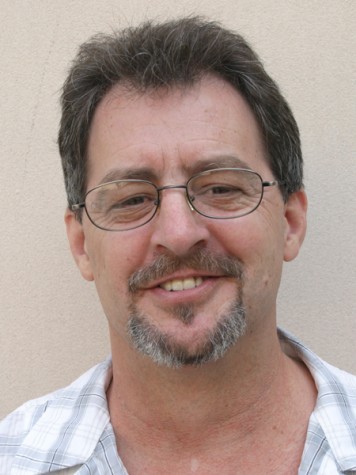Though the crowd was small, with only about 20 in attendance, the energy was more than plentiful at the March 30 Poetry Reading of Selected Poets.
Jessica Gillooly from the psychology department organized the reading and the stars of the show were Deborah Kinley and Sandi Sheffey-Stinson who are both in the business technology department.
The reading began with a brief history of how women’s history month became nationally celebrated. Sheffey-Stinson told the audience about how the women’s liberation movement took hold at the end of the ’60s, how Women’s History Week was first publicly celebrated in 1978 in Sonoma, California, and how March was finally declared by U.S. Congress as Women’s History Month in 1987. Kinley went on to read a statement by President Obama declaring that March 2010 is Women’s History Month and should be celebrated as such by the American people.
The first poem the two read was by Margaret Walker titled “For My People.” Sheffey-Stinson and Kinley through the poem switching off every other line and finished the poem off with a punch by reading in unison. This became a pattern in a few other poems read by the two women. The power of the words was enhanced by their reading style. They both read the poetic works of other historic women as if those words were their own.
“For the cramped bewildered years we went to school to learn to know the reasons why and the answers to and the people who and the places where and the days when,” read Sheffey-Stinson. “In memory of the bitter hours when we discovered we were black and poor and small and different and nobody cared and nobody wondered and nobody understood.”
Behind the podium, on the a big screen, was a video pulled up on YouTube of Helen Reddy, a famous Australian singer, ready to sing before an audience one of her biggest hits, “I Am Woman.” Sheffey-Stinson spoke about how this song was key to her growing up as a liberated women woman in the ’70s, and played the song for the audience. “I don’t want to bore you guys,” said Sheffey-Stinson as they cut the song before it was over. They went on to read a poem by Roberta “Bobbi” Sykes, an indigenous Australian poet, titled “Counseling.”
The two women went on to read three poems by the renowned woman poet, Maya Angelou. “Ain’t That Bad,” “Phenomenal Woman,” and “Still I Rise” were read by the two women with great passion and in a way that Angelou may have read them herself.
“You may shoot me with your words,” read Kinley. “You may cut me with your eyes, you may kill me with your hatefulness, but still, like air, I’ll rise.”
“Who here still gets mail?” Sheffey-Stinson went on to ask the audience. She asked people to raise their hand for whether they use Ms., Mrs., or Miss before their name when receiving or sending mail. Sheffey-Stinson and Kinley went on to inform the audience of the history behind the prefix Ms. In 1952 the National Office Management Association published “The Simplified Letter” suggesting that Ms. should be used to serve the same function for women as Mr. does for men. Using Ms. instead Mrs. or Miss allows a woman to keep her marital status private. This became one of staples of the women’s movement, the fight for a woman’s prefix.
The two women went on to read two poems by Beah Richards, famous playwright and actress, titled “Keep Climbing Girls” and “Son.” “Son” was a poem close to both readers’ hearts because they both have sons. Sheffey-Stinson and Kinley both spoke of how they’ve had to watch their boys grow up and move on towards adulthood.
They went on to read a poem by Gwendolyn Brooks, an activist for the rights of women and African-Americans, titled “Life for My Child.” After that, they read several poems by Yolande ” Nikki” Giovanni and Ntozaki Shange.
They read one more from Sykes and finished with a poem by Angelou titled “Best Poem Ever.” They closed the ceremony with another YouTube video on the big screen of a performance of “I Am Woman” from Smokey Joe’s Cafe.

